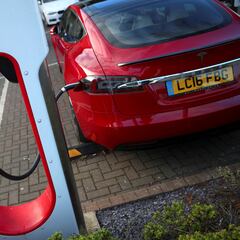Elon Musk’s Neuralink seeks volunteers to get the chip implanted in their brain
Fancy getting your brain experimented on by Elon Musk? Well, not literally, but his company is looking for subjects in the next stage of their programme.


After the first human trial earlier this year, Elon Musk’s company Neuralink is looking for the next subject in its technological trials.
Neuralink’s recruitment drive targets individuals with quadriplegia due to spinal cord injuries or ALS. These implants, equipped with advanced electrodes and wires, are designed to decode neural activity related to movement intention, allowing users to control devices simply by thinking.
The ultimate goal is to restore autonomy to individuals with neurological conditions.
“Neuralink is accepting applications for the second participant,” Musk wrote on X-formerly-Twitter, which he also now owns. “This is our Telepathy cybernetic brain implant that allows you to control your phone and computer just by thinking.”
Read more: Why is Neuralink so controversial?
What happened in the first trial?
Five months ago the first human trial was conducted on Noland Arbaugh. He was paralysed in 2016 during a diving accident, but the implant allowed him to use a computer cursor with his mind, playing chess in a video online.
— Neuralink (@neuralink) March 20, 2024
Related stories
“I didn’t have anything to wake up for in the morning, and this has changed that for me,” Arbaugh told Good Morning America. “I was just very happy that I would be a part of something that I believe is so monumental. This is the next step forward of helping people with paralysis.”
The trial encountered problems with the processing power of the device which led to its removal. Arbaugh said he “cried” afterwards. Other problems encountered in testing include damage to the threads linking the device to the brain which was known by the company before the trial on Arbaugh.

